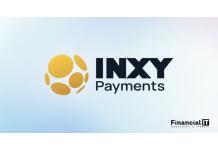Tether Announces the Launch of USA₮, the Federally...
- 02.02.2026 05:45 am
Aleo, Toku, And Paxos Labs Launch First Private...
- 30.01.2026 09:05 am
KAST Launches Earn Vaults to Bring High Performance...
- 26.01.2026 08:25 am
Humanity Mainnet Integrates with Fireblocks, Expanding...
- 22.01.2026 09:55 am
Bitso Earns CCSS 2025 Certification, the Highest...
- 14.01.2026 03:30 pm
BVNK To Deliver Stablecoin Infrastructure for Visa...
- 14.01.2026 09:35 am
Bitget Sees Institutional Spot Trading Share More Than...
- 13.01.2026 12:05 pm
SBI Ripple Asia Partners with Doppler Finance for XRP...
- 23.12.2025 10:55 am
Bitget Wallet And Alchemy Pay Launch Zero-Fee USDC on-...
- 23.12.2025 09:55 am
Shift4 Launches Global Stablecoin Settlement Platform...
- 23.12.2025 07:05 am
INXY Payments Reveals Growth of Stablecoin Adoption...
- 19.12.2025 01:55 pm
Intuit And Circle Partner To Unlock the Future of...
- 19.12.2025 10:05 am






















